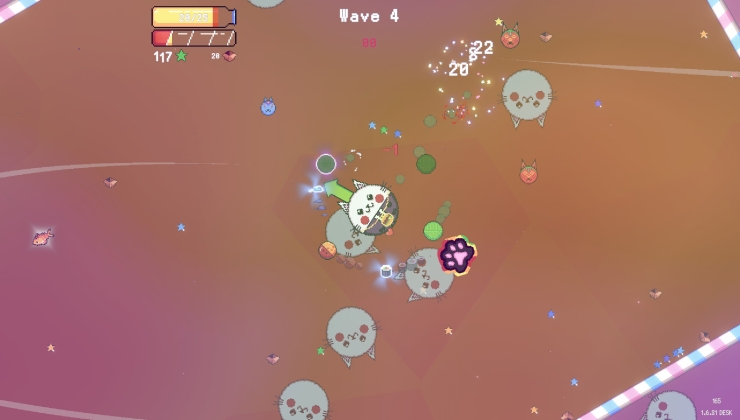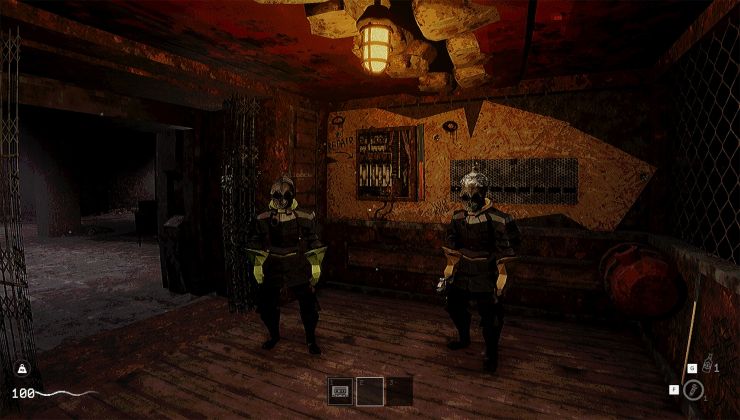Valve are continuing to build up Deadlock, their fancy new third-person MOBA, with the introduction of a new anti-cheat system that's quite hilarious.
The update launched yesterday noted an "initial Anti-Cheat detection system". It comes with a fun feature that allows players to either ban the detected cheater instantly and end the match, or turn the cheater into a frog for the rest of the game and then ban them after.
Valve devs say this new system is "set to conservative detection levels" while they work on an improved version 2 anti-cheat system that will be "more extensive". You also now have a cheat report option both in-game and post-game, with the main anti-cheat system to go live "in a couple of days".
Apart from that, this update was a reasonably big one too. This update has added in a new hero, Mirage:
Plus there's also now a Custom Match mode and private lobbies got expanded with new options like enabling cheats, selecting the server, make the match public or private, supports post-game and replays and allows for picking a lane.
There's also performance improvements, expanded servers into South Africa, an Italian localization, voice indicators for speaking players, various bug fixes and numerous tweaks to the gameplay.
Deadlock is free to play, and runs on Linux via Proton. You still need to be invited to play.
You can follow it on the Steam page.
Not to be confused with Valves "Frog Protocols" ...
It's their Froglock Anti Cheat :D
I believe Valve would be the first big company to attempt it, and it could be huge if they do it properly.
I'm wondering whether their cheat detection is server side. Some wording let me think it might be: "detection levels", "turn on the banning of users in a couple of days after the update".VAC has always been server side and there are many other anticheat that are server side on some level
I believe Valve would be the first big company to attempt it, and it could be huge if they do it properly.
Last edited by minidou on 28 Sep 2024 at 6:36 am UTC
I'm wondering whether their cheat detection is server side. Some wording let me think it might be: "detection levels", "turn on the banning of users in a couple of days after the update".VAC has always been server side and there are many other anticheat that are server side on some level
I believe Valve would be the first big company to attempt it, and it could be huge if they do it properly.
VAC is also client side,they compare the hash of known cheating libraries with the ones loaded. Someone got their ban overturned after realizing the culprit hash corresponded to a zero-byte file.
This is probably to make false positives obvious, to avoid falsely banning players while it gets tuned.
----
That skin-colored pair of pants in the screenshot, though: I thought the character was naked.
Last edited by MayeulC on 28 Sep 2024 at 6:47 am UTC
So essentially this anti-cheat system is based on witchcraft?
The 9th level spell, True Polymorph
If someone still needs an invite, shoot me a DM.
How do you like it? And how's the performance for you?
If someone still needs an invite, shoot me a DM.
How do you like it? And how's the performance for you?
Haven't played a lot myself, just some training and bot fights.
performance is quite good, very fast and I can still adjust downwards if needed.
I'm wondering whether their cheat detection is server side. Some wording let me think it might be: "detection levels", "turn on the banning of users in a couple of days after the update".VAC has always been server side and there are many other anticheat that are server side on some level
I believe Valve would be the first big company to attempt it, and it could be huge if they do it properly.
I was refering specifically to cheat detection being performed server side, with no reliance on the client whatsoever.
All big names anti-cheats on the market today -VAC included- rely entirely on the client to perform the detection. Some kind of handshake with the server is included to confirm the anti-cheat has been run, but that's about it.















 How to set, change and reset your SteamOS / Steam Deck desktop sudo password
How to set, change and reset your SteamOS / Steam Deck desktop sudo password How to set up Decky Loader on Steam Deck / SteamOS for easy plugins
How to set up Decky Loader on Steam Deck / SteamOS for easy plugins
See more from me